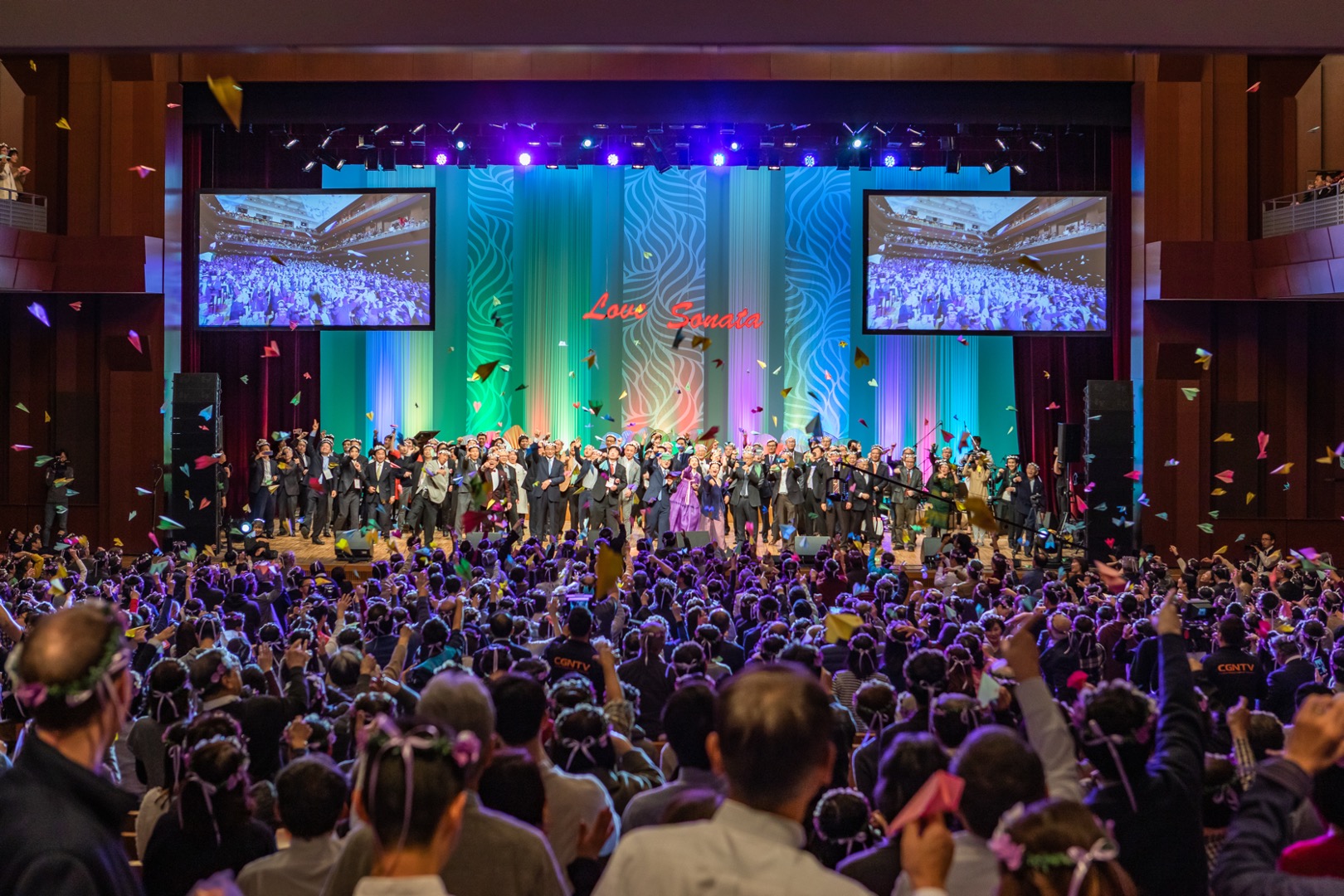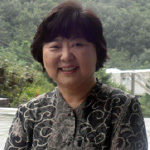The History of Christianity in Korea and Japan
Korea and Japan are called ‘the closest but the farthest nations.’ Yonhap News reports that only 16.7 percent of Koreans have positive feelings toward Japan, while 20.2 percent of Japanese have positive feeling for Korea.[1] The Japanese prohibition of hate speech has not extinguished the discriminatory actions against Koreans, and the anti-Japan campaigns in Korea seem to be a political strategy for more support from citizens. A deep gulf still exists between the two nations.
During the 36 years of colonization by Japan, Christians in Korea suffered persecution by the Japanese military government. The military government imposed emperor worship on all institutions in Korea. After the resistance movement on 1 March 1919, more than 3,000 Christians were arrested and 50 of them were martyred in jail. Seminaries and Christian schools were forced to close, and some churches were totally destroyed.[2] Korean people went through other sufferings including deprivation of their properties, identity, education, and lives. To make matters worse, Japanese churches participated in the political invasion and colonization of Korea under the wrong theology. Only half a century later, Japanese denominations confessed the wrongdoing officially.
Against this background, the features of Christianity in these two nations are totally different. The Christian population in Korea is 19 percent of the total population, while in Japan it is about 0.8 percent. Korea often identifies herself as the ‘Israel of East Asia.’ Japan, to the contrary, is known as the ‘graveyard of missionaries.’
Korean Churches Helping Japanese Churches
Some Korean Christians try to help struggling Japanese churches in different ways. For example, Yoido Full Gospel Church, one of the world’s largest churches, started a mission campaign called ‘10 Million Salvations in Japan’ in 1977. The primary method was through a TV program called ‘Invitation to Happiness’, in which Rev Yonggi Cho preached in Japanese. However, the result was not very successful after 18 years of effort. Yoido Full Gospel Church stopped the TV ministry in 1998.
Another example is Sarang Church, who invited Japanese pastors and church leaders to discipleship seminars for several years in the 1980s. The church sent a number of mission teams to help Japanese churches for decades. However, there were no visible results.

‘Japan Love Sonata’ of Onnuri Community Church[3] – Programs and Impact[4]
In 1999 Rev Yongjo Ha, the senior pastor of Onnuri Community Church in Seoul, approached this difficult nation by establishing a Christian publisher, Durranno Japan, to supply good Christian literature for Japanese believers. He also planned to build Onnuri vision churches in Japan. In 2003 he started the first branch church in Osaka, which was followed by six other branch churches in different cities in Japan. Rev Ha explained that the purpose for establishing branch churches in Japan was not to extend Onnuri influence, but to encourage the Japanese churches through their services. Later, when he realized TV ministries were influential in an age of mass media, he established Japan CGNTV in Tokyo and Osaka. This radically transformed the media ministries in Japan. Before CGNTV began, there were only several 30-minute Christian programs in minor cities. CGNTV provided 24-hour Christian programs introducing world famous preachers and programs from all over the world with translations. Still the Japanese church situation did not improve. Finally, Rev Ha discovered the potential of cultural events with Korean Christian celebrities. By this time Korean streaming was very popular among Japanese women to a level unknown in Japanese history. Thus, a series of culture-based evangelistic campaigns named Japan Love Sonata started in 2007 as a new mission strategy by Onnuri Church.[5]
Japan Love Sonata is a multi-dimensional mission project including revival seminars, praise nights, and forums for social leaders, with ‘Love Sonata’ as the main evangelistic event. Since 2007, Love Sonata programs have been held 33 times in major cities throughout Japan. All of them were successful in terms of participation. They rented the largest halls in each city, and the seats were all filled in most cases despite the suspicion of the hall managers. The total number of participants was 77,254, with 3,394 making a decision to accept Christ.
The Love Sonata programs are culturally oriented. The stage programs are highly seeker-centered with a lot of high-quality cultural performances including classical music, Korean traditional music, gospel choir, ballet, and hip hop dance. Rev Ha advocated cultural approaches for evangelism by describing the gospel as the water and culture as the cup: ‘Without a cup, people cannot drink. The shape of the cups may differ, but the water is the same. We have to use culture as the cup to hold the gospel so that people can drink the water (gospel).’[6] He also explains the challenges of contextualization: ‘The church is a ship and culture is the sea. The ship sails the seas and is on the waters. However, if the water comes into the ship, it will sink. We need to understand that the church is in culture, but if the secular culture comes into the church, the church will sink.’[7] Love Sonata is aware of the dangers, and the cultural performances are utilized solely for a better presentation of the gospel.
Love Sonata, as the name indicates, is a project with demonstrations of warmth and love. For example, the Korean ushers stand from the nearest stations in the event hall in uniforms with welcome signs. The ushers are well trained beforehand and act with kindness and smiles. The culturally-sensitive performances and testimonies of the celebrities often help the participants to open their hearts and be ready to listen to the message of the main speaker. At the end of the program, they offer a very dramatic finale utilizing colorful paper planes, balloons, handkerchiefs, flower crowns, and pen lights. Japanese are generally conservative in expressing their emotion, but by this moment most participants would feel loved and are open to enjoying the dramatic finale.
After the Love Sonata programs, Onnuri church continues her mission by sending various ministry supports, such as Father School, Mother School, Blessed Family Ministries, Quiet Time Seminars, and One-on-One Discipleship. Christian Global Network (CGN) TV supports all the events with media technologies, through which more people can experience the blessing through media and online. With these follow-up programs, local churches in Japan receive further relevant support from Onnuri ministry teams.
The greatest impact of the Love Sonata program is the love Korean Christians demonstrated towards the Japanese. So far, 18,310 Korean Christians have come to Japan all the way from Korea just to serve in Love Sonata at the expense of their time, money, family, and work. Most Korean volunteers do not even have a chance to see the stage programs. They prepare the materials, pray for the event, and serve in different roles simultaneously behind the scenes. The very highlight of love expressed is the keynote speaker Rev Ha’s message. He would start his message with an apology to the Japanese: ‘I am sorry, Japanese friends, for not forgiving you for a long time.’ It is a shocking word for Japanese as they have a stereotyped idea that Koreans always demand an apology from the Japanese. Therefore, when a Korean pastor apologizes, it is a shocking and touching moment for Japanese. The message of the true love of Jesus Christ following an apology is very moving for Japanese participants.
Japanese Christians, both ministers and believers, are often discouraged by the indifference and rejection of non-believers in Japan. By observing the sacrificial service of Korean Christians for Japan, they are encouraged and challenged in evangelism. Especially when they came to know that Rev Ha had six liver operations just before the events, and was receiving weekly dialysis due to his illness, they were deeply moved by the commitment and dedication of Rev Ha and his church members.
Rev Ha passed away in 2011, but his love for Japan was succeeded by the next pastor, Rev Lee Jae Hoon. He and Onnuri Church continue ‘Love Sonata’ in Japan twice a year. The financial burden for one local church to carry out this series of events itself shows their sacrificial love for Japanese people.
With this love and mission service by Onnuri Church, Japan is changing slowly with 2,234 churches participating in Love Sonata and fellowshipping across denominational boundaries. The younger generation gather together and plan their own events. One of the few devotional textbooks in Japan is published by Durranno Japan, and CGNTV provides a devotional guide for it, inviting Japanese ministers as preachers every day. Programs such as Father School and Mother School are actively helping in the restoration of families; Quiet Time Seminar and One-on-One Discipleship are strengthening the faith of Japanese believers.
Reflection for the Global Church
With true forgiveness[8] and lots of sacrificial love in Christ, Rev Ha and Onnuri Church have helped to bridge the deep gulf between Korea and Japan. Today people in many parts of the world are suffering due to racial discrimination, exploitation, abuse, invasion, even genocide, and the normal reaction of the victim is hatred, unforgiveness, and revenge. The cycle of resentment will never end unless reconciliation happens. Only Christians who know the reality of sin in human beings, and who experience the true forgiveness of Christ can be the catalysts for such reconciliation. It is possible as shown in this powerful testimony of Rev Ha and Onnuri Church, and what they did for Japan by the grace of God.
Endnotes
- Yonhap News, https://www.asahi.com/articles/ASP5V4S2DP5VUHBI00S.html.
- Kyongbae Min, ‘Kankoku no Kirisutokyo [Christianity in Korea],’ in Aziakirisutokyoshi [Asia Christian History], ed. Go Rimei et al. (Tokyo: Kyobunkan, 1995), 123-48.
- ‘Love Sonata,’ www.lovesonata.org. More photos available from http://www.lovesonata.org/media/photo.
- Similar analysis on Love Sonata was written in ‘Missiological Analysis of Love Sonata in Japan’ by Eiko Takamizawa, Torch Trinity Journal, (2008, 11:1), 147-58.
- Onnuri Japanese Service, 30 nen no Shukaku ga Futatabi Tane to natte: Nihon eno Kawaranai Kamisama no Ai [ 30 years Harvest are Now Seed Again: Unchanging Love of God toward Japan].
- Yong-Jo Ha on ‘Church and Culture’ in a lecture given at the Revival Seminar at Love Sonata Sapporo, 31 October 2007.
- Ha, ‘Church and Culture’.
- Editor’s Note: See article by Wafik Wahba entitled, ‘Witnessing to the Gospel through Forgiveness’, in January 2018 issue of Lausanne Global Analysis, https://lausanne.org/content/lga/2018-01/witnessing-gospel-forgiveness.




